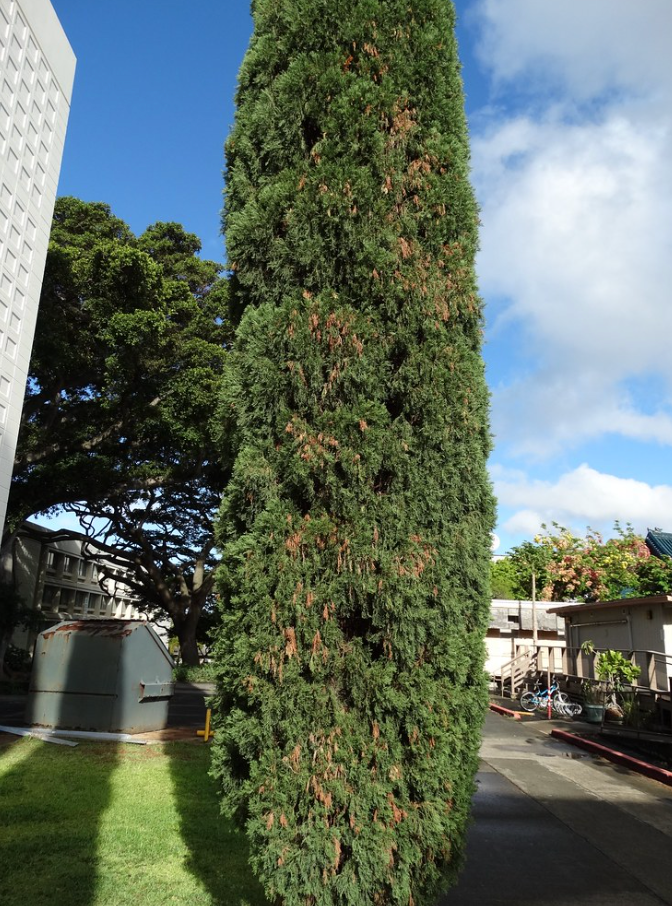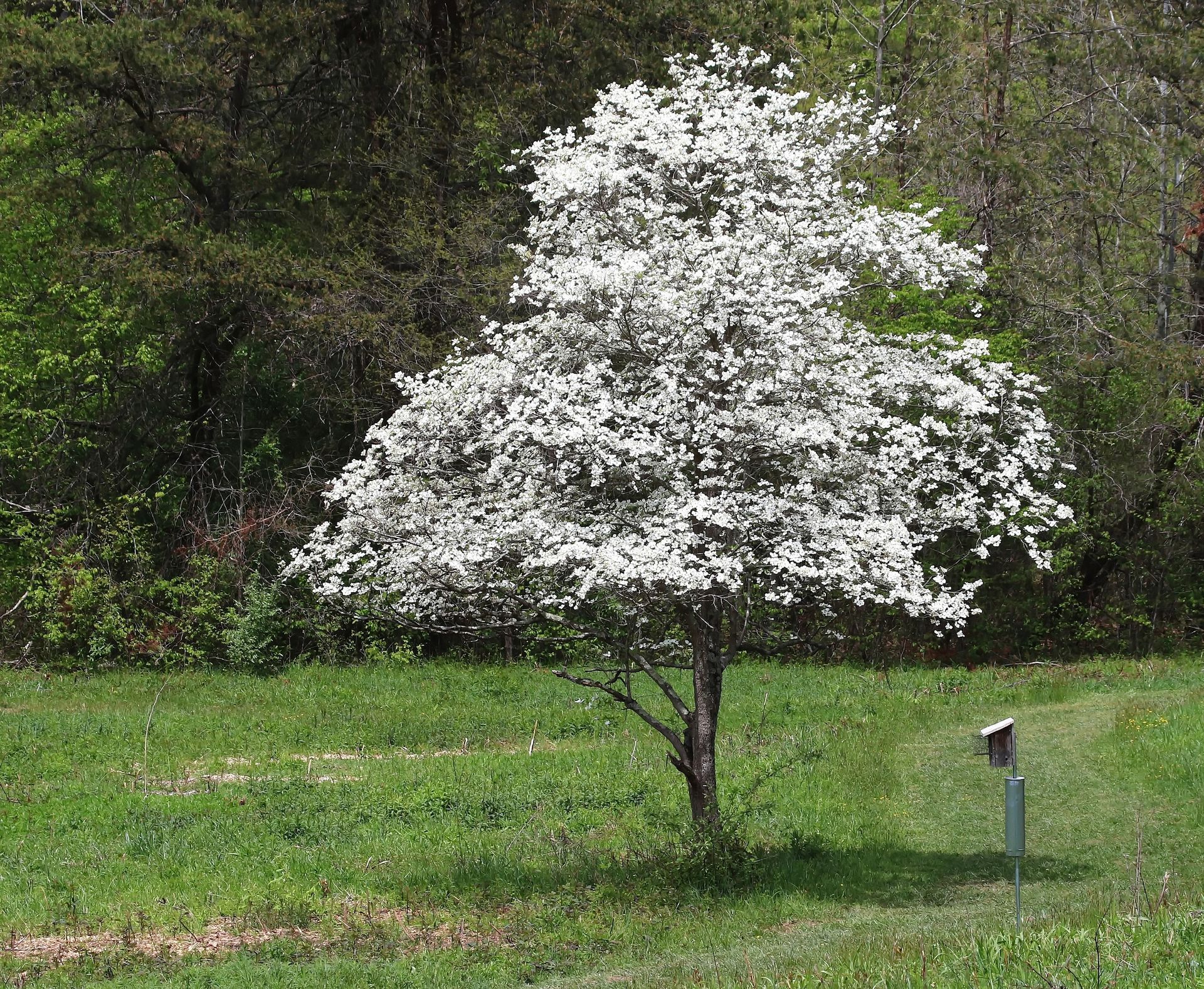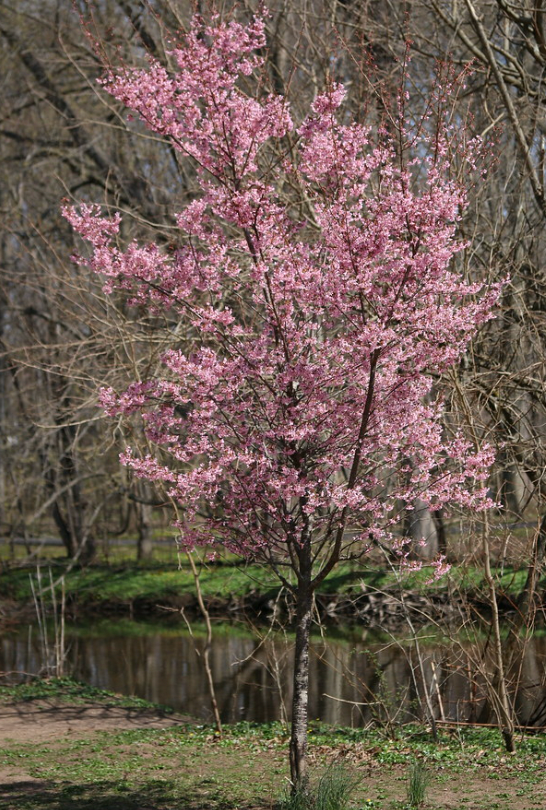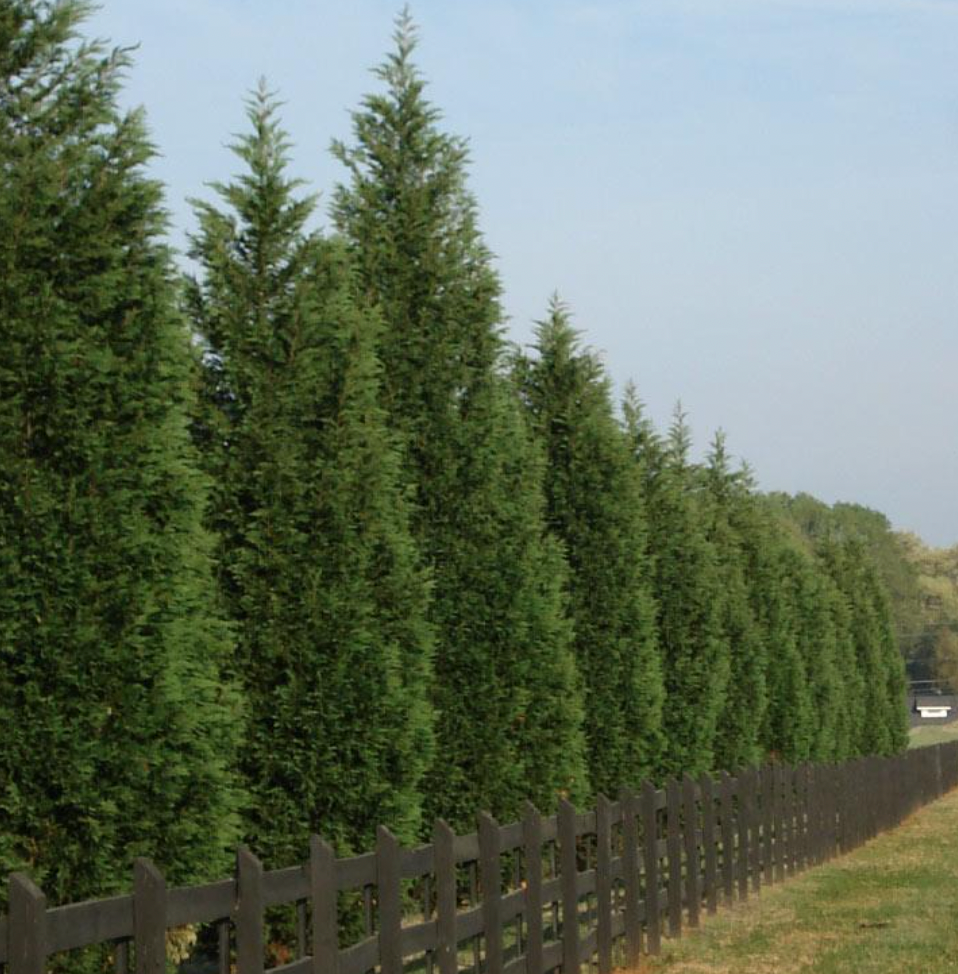Top 10 Best Trees for Privacy in 2023: Fastest Growing, Evergreens, and More
by Carl Anderson
Updated on Jul 4, 2023
When it comes to privacy trees, most people don't know where to start. Growing a living fence is hard and picking out the right trees for privacy is even harder. As a rule of thumb, you can't go wrong with fast-growing, evergreen trees for year-round privacy. But don't worry, we'll go over everything you need to know and more to make the right choice.
List of Services
-
Best Overall - Emerald Green ArborvitaeList Item 1
The Emerald Green Arborvitae is a popular evergreen tree for privacy in both the front yard and in the backyard. Even though it grows on the slower side, when its mature enough or if bought mature and established right, the Emerald Green Arborvitae is one of the best trees for privacy.
-
Best Evergreen - Thuja Green GiantList Item 2
The Thuja Green Giant is the best evergreen tree for privacy. It's fast growing, grows over 30 feet tall and can be planted in rows to make a perfect privacy screen.
-
Best Deciduous - Flowering Dogwood TreeList Item 3
While deciduous trees are not perfect for privacy trees, the Flowering Dogwood is an excellent option for seasonal privacy. They grow into large trees with vibrant colors and provide enough privacy for the average homeowner.
-
Best Fast Growing - Leyland Cypress Trees
Leyland cypress trees are the one of the best trees for privacy because they are fast growing privacy trees. These beasts can grow over 2 to 4 feet year which makes them ideal for most homeowners.
-
Best Fruiting Tree - Cherry Blossom
Cherry blossom trees come in various varieties with colors and shapes for any landscape. Some of the best varieties are the Weeping Pink Cherry, the Okame Cherry Tree, and the Yoshino Cherry Tree.
Emerald Green Arborvitae - The best tree for privacy. It's dense, is low maintenance and is ideal for a living hedge. Great privacy tree for most homeowners. Check it out here.
Table of Contents
- The Top 10 Best Trees for Privacy - Full Analysis (Updated for 2023)
- Best Overall Privacy Tree - Emerald Green Arborvitae
- Fragrant Tea Olive Tree
- Hydrangeas
- Juniper Trees
- Italian Cypress Tree
- Best Deciduous Tree for Privacy
- Weeping Willow Tree
- Cherry Blossom Tree
- Fastest Growing Privacy Tree - Leyland Cypress Tree
- Best Evergreen Privacy Tree - Thuja Green Giant
- Sweet New Earth's Top Pick
- How To Choose The Best Tree for Privacy
- Evergreen vs. Deciduous
- Growing Zone
- Tree Care
- Weight
- Conclusion
- FAQs
Things to Consider Before Buying
Evergreen vs Deciduous
Depending on how much privacy you want will determine what type of tree you buy. Evergreens are going to make better privacy hedges for your landscape. Deciduous can provide a bit of privacy while also giving shade and pop to your yard.
Growing Zone
This is critical. Make sure you do your own research and figure out what zone you live in. There is no way we can cover all privacy trees for all growing zones so please look that up on your own.
Tree Care
Tree care is critical however some trees require far less watering, pruning and feeding than others. Depending on how much work you want to do to get a privacy tree established could affect what type of tree you end up buying.
Sunlight
You need to pay attention to the sunlight requirements your tree needs. You wouldn't want to buy a tree that only needs partial shade and accidentally plant in in a full sun location. Again, this will come down to your unique landscape or yard.
The Top 10 Best Trees for Privacy - Our Full Analysis (Updated for 2023)
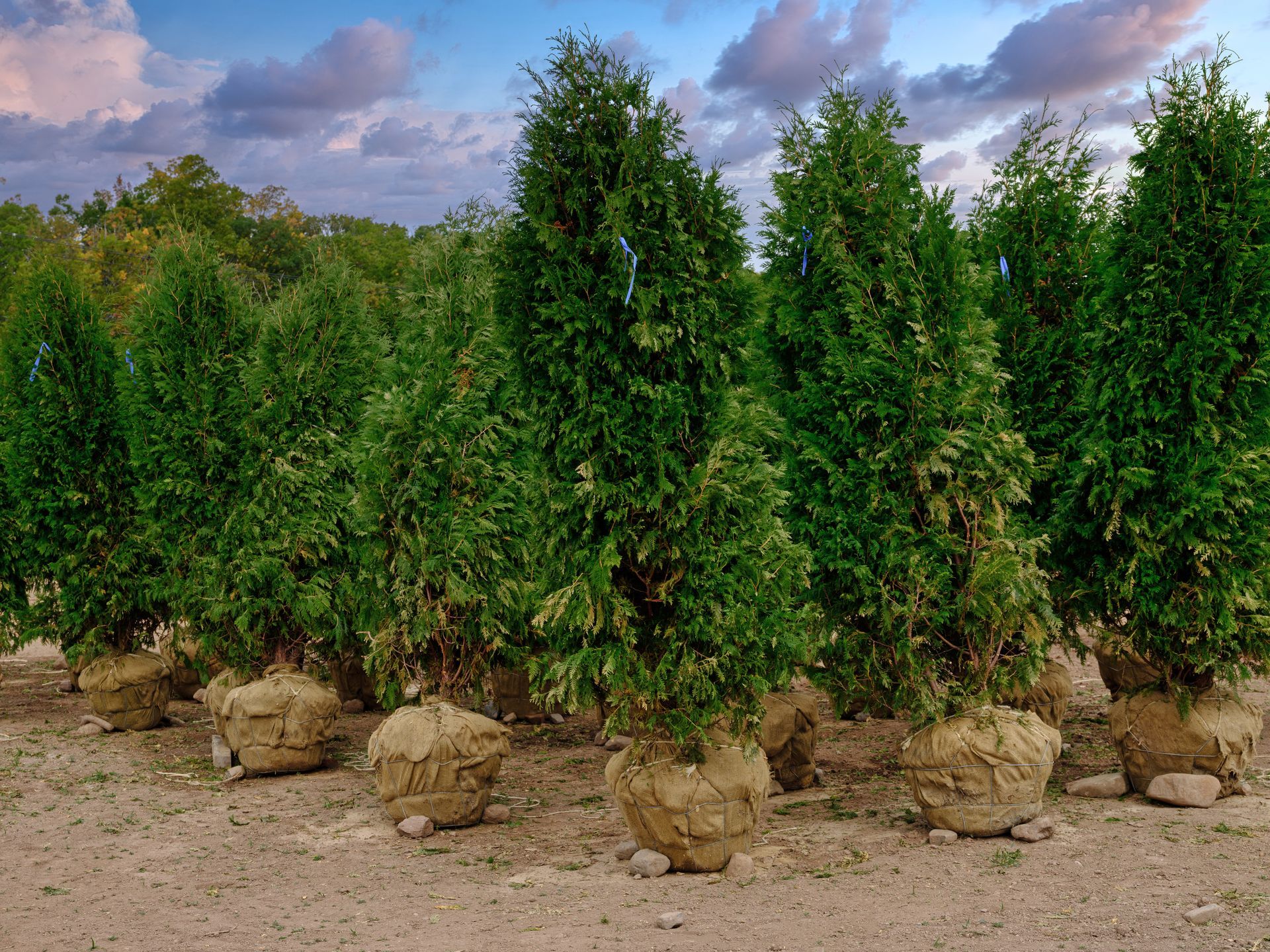
Quick Care
Sunlight: Full sun to partial shade, minimum 6 hours of direct sunlight per day
Soil: Prefers for well-drained loamy soil with neutral to alkaline pH
Mature Height: 10 to 15 feet
Annual Growth Rate: 1 to 2 feet per year
Growing Zones: 2 to 8
The Emerald Green Arborvitae is a popular evergreen tree for privacy in both the front yard and in the backyard. Why? Because they are giant green walls.
If you want them as a privacy screen from your neighbor's house rather than a fence, plant them about 3 - 4 feet apart along the length of you yard. They have a relatively low-maintenance routine as most evergreen trees do, and they grow well in Zones 2 to 8.
They are known for performing better than other evergreens in colder climates. But as cold hardy as they are, they still need full sun to partial shade to grow properly. Nonetheless, planted across your property lines, they are one of the best property lines.
PROS
- Best privacy trees
- Low Maintenance once established
- Don't require pruning
CONS
- Slower growing
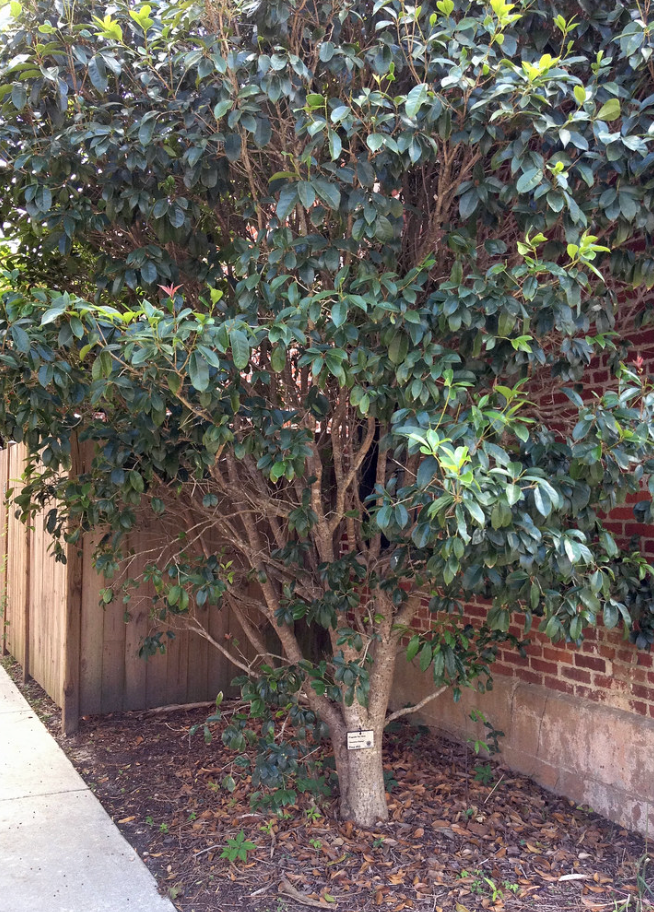
Quick Care
Sunlight: Full-partial
Soil: Moist, well-drained soil
Mature Height: 10 feet
Annual Growth Rate: Up to 2 feet per year
Growing Zones: 8 to 11
Finally, a tree that smells. Good. The Fragrant Tea Olive tree is a slow-growing tree growing one to two feet per year. Its fragrance repels mosquitoes when they bloom, and at full height and width, the tree serves as one of the best privacy trees.
If you don't prune them, they can grow up to 30 feet tall but with the right pruning most people keep them down to about 6 feet. That can be annoying for some people who just want to plant their tree or shrub and forget about them once they are established. Nonetheless, this disease-resistant, semi-hardy tree is a viable option for privacy in warmer climates.
PROS
- Fragrance repels mosquitos
- Unique and pleasant smell
- Desired by landscapers and homeowners alike
CONS
- Requires pruning
- Only hardy down to 20F
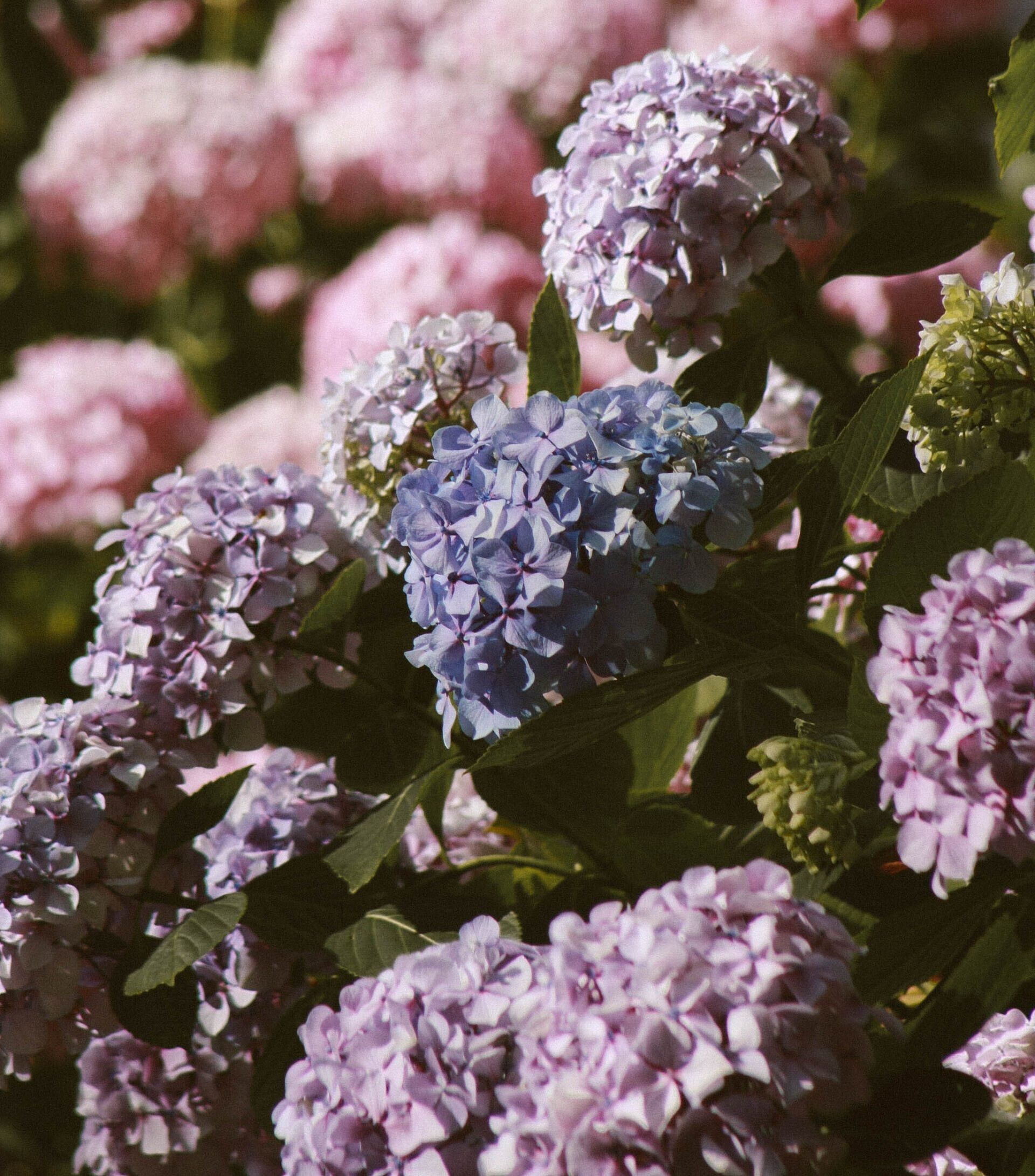
Quick Care
Sunlight:
Part Shade/Part Sun: Zones 6-9
Full Sun: Zones 4-6
Soil: Well-drained soil
Mature Height: 3 to 4 feet, but depends; some can grow up to 12 feet
Annual Growth Rate: 2 feet tall
Growing Zones: 4 to 9
Hydrangea shrubs are, without a doubt, one of the most beloved plants across the US. Their seemingly unlimited variety and vibrant colors make them a favorite tree shrub for front yard landscaping. But are they good for privacy?
Some hydrangeas can be, but some are less than ideal. There are both hydrangea trees and shrubs and they grow at various different heights and sizes.
The two best hydrangea trees for privacy are the Hydrangea paniculata and the Limelight hydrangea. They grow up to 15 feet and 6 feet, respectively, and can shield your privacy while keeping that beautiful hydrangea exterior.
PROS
- Grows in Zones 4 to 9
- Hardy to low temperatures
CONS
- Poisonous
- Incorrect pruning can damage them
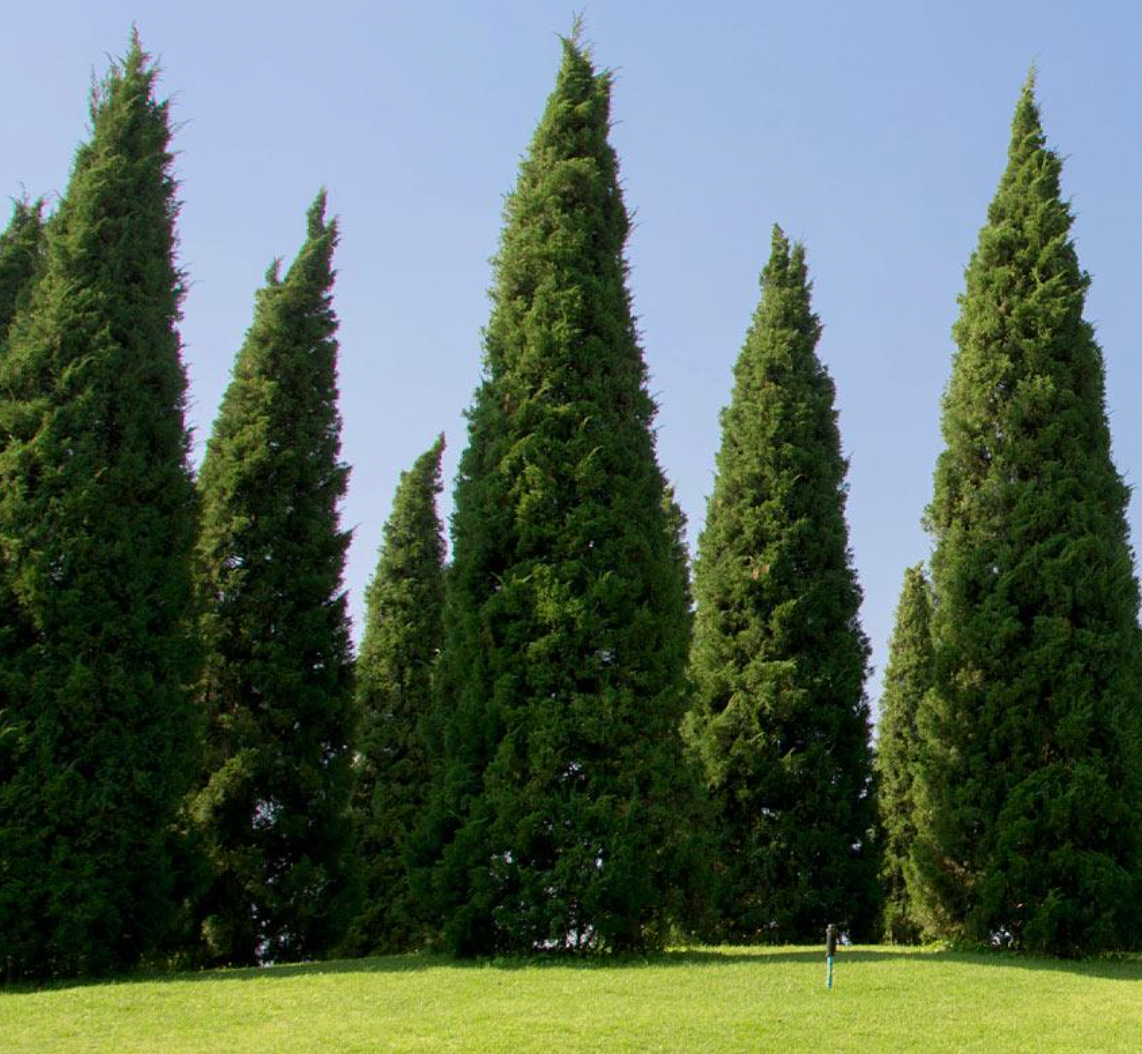
Spartan Juniper
Quick Care
Sunlight: Full sun
Soil: Well-draining soil
Mature Height: 20 to 40 feet tall
Annual Growth Rate: Moderate
Growing Zones: 4 to 9
Juniper trees. Tall evergreen walls. One of the best trees for privacy. When you think about privacy trees, you might have the Juniper in mind. Some varieties can grow up to 20 feet tall or more. They live long, are deer resistant and stand out. Not only that, but they are manageable if you don't have tons of space.
If you don't want to grow them in your yard, no worries. They can also grow in pots depending on the variety. Some of the most popular varieties are the Taylor, Hollywood, and Blue Point. Impossible to make a bad choice when picking out a Juniper.
PROS
- Many different varieties
- Tall trees
CONS
- Juniper blight
Quick Care
Sunlight: Full sun
Soil: Well-drained
Mature Height: Up to 40 feet over 10 years but you can trim to desired height
Annual Growth Rate: 3 feet per year
Growing Zones: 8 to 10
The elegant, the debonair, the Italian Cypress tree is famous for growing straight up without ever looking back. They don't grow wide but they grow tall... and fast, up to three feet per year.
When they reach the height you want them to be, you simply top them and they are perfect. Some even put them in pots so they frame entry ways or cover up unsightly pipes or building corners.
If you want, you can plant the Italian Cypress in rows three feet apart or alternate planting up to six feet apart, and three feet high. They are deer resistant and can fit almost anywhere in your garden or front yard landscape.
PROS
- Narrow
- Fast growing
- Non-invasive roots
CONS
- Growing zone is 8 to 10 outdoors
Quick Care
Sunlight: Full Sun or Partial
Soil: Well-drained, slightly acidic
Mature Height: 25 feet tall
Annual Growth Rate: 2 feet per year
Growing Zones: 5 to 9
Ah yes. The flowering dogwood tree! We have covered these extensively before so if you want to learn more about Flowering Dogwoods be sure to check out our guide. These are some of the best front yard trees to have in your landscape.
If you want to add color and shade to your landscape then growing dogwood trees is a great way to do it. But are they great as privacy trees? Not the best - that is for sure. They drop their leaves in the fall so they are only ideal for seasonal privacy which some people aren't for. Not only that, you can't really plant them in rows like you can with a Cypress tree or certain hedges.
But maybe you don't want perfect privacy. Then you can use a Dogwood. They can grow up to 25 feet and have a huge width that's enough to cover most windows in the front of a house. When you think of privacy, you think of fences and Dogwoods are not fence trees... but they are beautiful.
PROS
- Vibrant colors
- Increases curb appeal
- Great in most climates
CONS
- Not perfect as a privacy tree
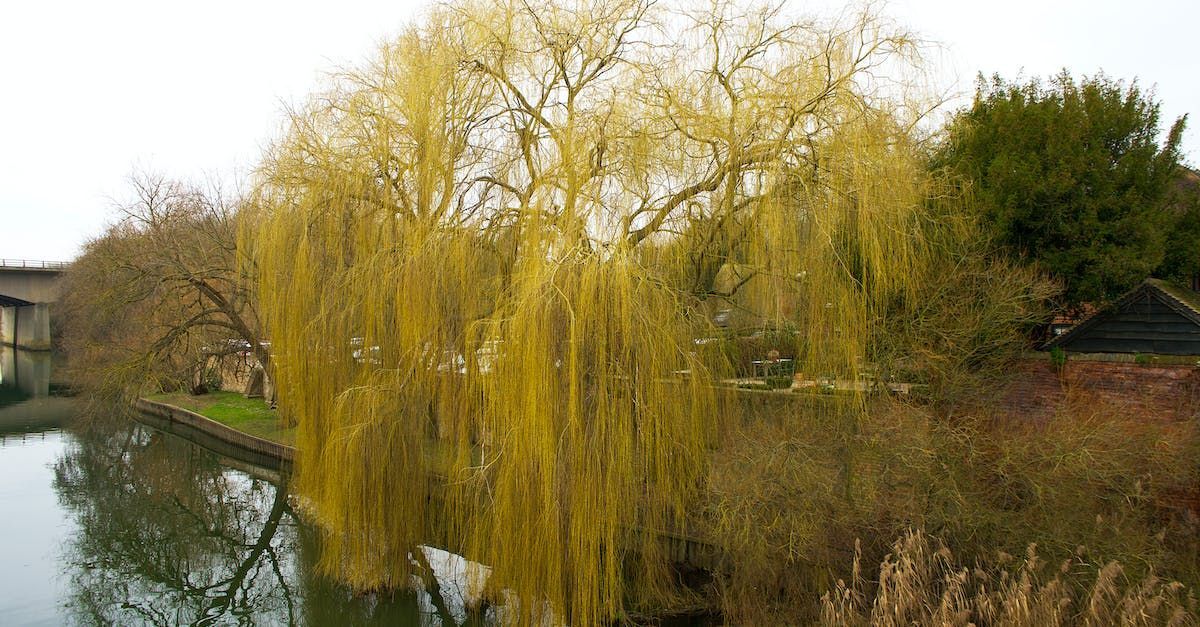
Quick Care
Sunlight: Full-partial
Soil: Adaptable
Mature Height: 30 to 50 feet
Annual Growth Rate: Fast
Growing Zones: 4 to 9 feet outdoors
The Weeping Willow Tree is a massive tree that weeps about adding drama to any landscape. They can grow anywhere from 30 to 50 feet tall and are hardy down to some of the coldest temperatures.
We love the Weeping Willow but don't know of anyone who would buy it solely for privacy. But with a height of 50 feet, the Weeping Willow is known to hide houses and landscapes behind its massive canopy. That being said, you need to plant it away from structures so it has enough room to grow.
The Weeping Willow is a fast-growing shade tree. It can gain heights of up to two feet or more per year. It adds some serious curb appeal to your landscape, but its ideal purpose is for drama, character and shade.
PROS
- Large and unique
- Perfect shade tree
CONS
- Too big for most homes
- Needs to be away from structures
Quick Care
Sunlight: Full sun
Soil: Well-drained, acidic soil
Mature Height: 20 to 30 feet
Annual Growth Rate: Moderate
Growing Zones: 4 to 9
Cherry blossom trees come in a wide range of varieties with colors and shapes for any landscape. Some of the best varieties are the Weeping Pink Cherry, the Okame Cherry Tree and the Yoshino Cherry Tree. You can't go wrong with any pick just depends on if you want pink or white flowers beautifying your lawn. Some varieties even produce small red berries.
When they aren't in bloom weeping varieties resemble the Weeping Willow we listed above, but when in full bloom the colors are absolutely stunning. These are great because they can give some privacy to those colder climates up north but like most deciduous trees, they aren't ideal as a privacy screen or fence.
One of the Cherry blossoms can grow wide enough to cover the front of a house but it's not true privacy like a fence or an evergreen tree wall. The good news is these trees are sturdy and long lasting so you can expect to have them for years to come.
PROS
- Multiple varieties
- Grows in colder climates
CONS
- Drops trees in the Fall
Quick Care
Sunlight: Full sun
Soil: Adaptable to sandy soils and clay soils
Mature Height: 40 to 60 feet
Annual Growth Rate: Fast
Growing Zones: 6 to 10
Leyland cypress trees are one of the most popular trees for privacy. It's probably the most popular and best selling privacy tree on the market and for a good reason. it's perfect! It can grow anywhere from 40 to 60 feet tall, and it's thick foliage acts as the perfect screen around your home. Not only that, but the tree is hardy down to 0 degrees so it can grow almost anywhere.
Another reason we love this tree is because it grows anywhere from 3 to 5 feet per year. Incredible! Talk about fast growing privacy trees. If you don't trim them, they will grow into each other forming the best living wall you could ask for. If you live in the right growing zone, the Leyland Cypress is a must have for privacy.
The Leyland cypress is truly a great tree. It beats out many trees for privacy reasons, and is low maintenance.
PROS
- Perfect living hedge
- Fast growing
CONS
- Expensive
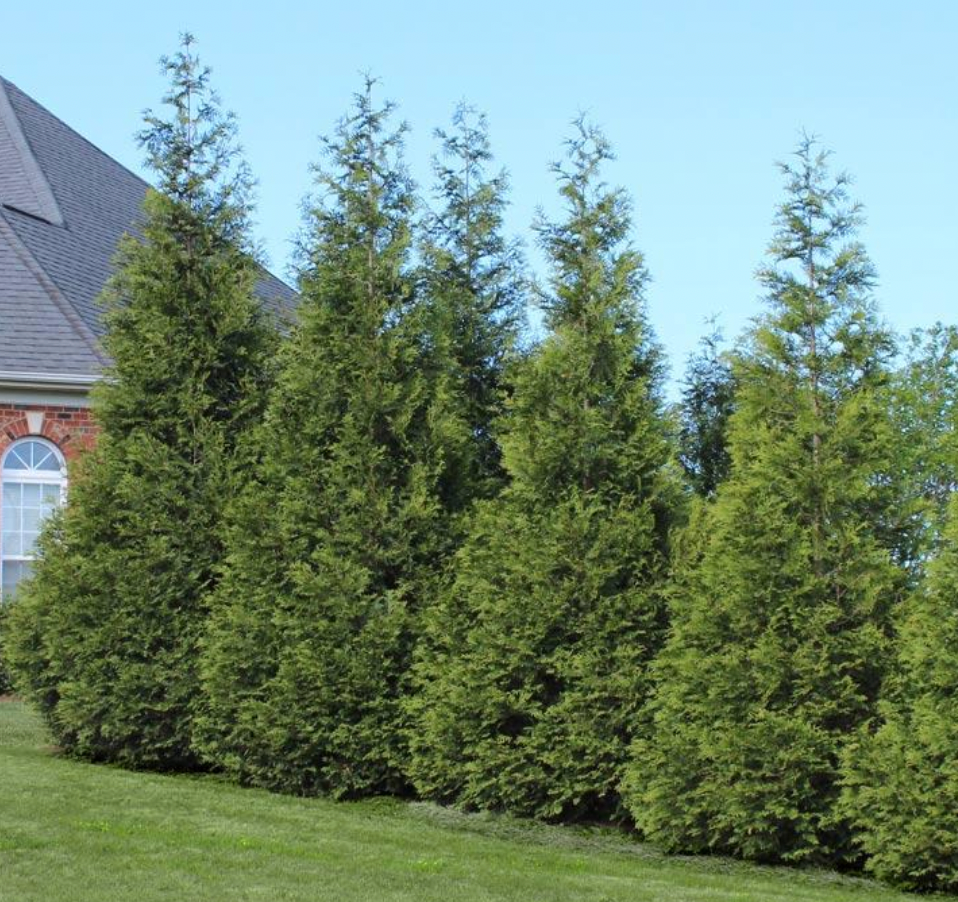
Quick Care
Sunlight: Full partial
Soil: Grows in almost any soil conditions
Mature Height: 30 to 50 feet
Annual Growth Rate: Fast
Growing Zones: 5 to 8
The Thuja Green Giant. Known for being one of the most popular privacy trees out there. Another beautiful evergreen that can scale heights over well over 30 feet. How you plant the trees will determine its height - whether in a straight or staggered row.
This tree is tough. It resists both deer and frost damage. It can grow in Zones 5 to 8, and has a width over up to 15 feet. It's a fast-growing, sturdy tree or windscreen. Just a lovely tree that doesn't need much to give you everything you need for your landscape.
The green giant is a favorite among landscapers and gardeners alike. They are low maintenance compared to other trees and because of how they grow, they are truly one of the best trees for privacy.
PROS
- Fastest growing trees
- Drought tolerant
- No real insect issues
CONS
- Takes 3 years to establish
Sweet New Earth's Favorite Tree for Privacy
Over favorite privacy trees are trees that can grow as privacy screens. We like living hedges. So that means we tend to lean towards trees like the LeyLand Cypress tree. The Italian cypress tree is a little bit too skinny for our liking (as a privacy screen). They are great for giving your landscape a unique aesthetic but if you want the best trees for privacy, then you need to go with the Leyland Cypress. The dense foliage that is evergreen foliage is just perfect for year round privacy.
How We Chose The Best Trees for Privacy
When choosing the best trees for privacy, there are a few things you need to consider. We covered some of them briefly above but we'll go over them a little bit more here. The top things to consider are:
- Evergreen vs Deciduous
- Growing Zone
- Tree Care
- Sunlight
Evergreen vs Deciduous
Evergreen
Here's probably the most important question. Do you want an evergreen tree or do you want a deciduous, flowering tree? Deciduous trees and evergreen trees are always some of the best front yard trees but which is ideal for privacy?
Evergreen trees are great for privacy because you can plant the trees in rows or staggered rows and their dense foliage will grow into each other to form a literal wall of trees. That's right. Planted close, evergreen trees are the best trees for privacy. Not only that but they are fast growing privacy trees.
An excellent evergreen tree in Colorado is the Blue Spruce. It's excellent as both a wind and privacy screen.
Deciduous
Deciduous trees are good for privacy but they are a bit more well rounded than evergreen trees. You can't really plant them the same way as evergreen trees and get that same evergreen screening affect but deciduous trees are flowering trees.
They are great trees if you want beautiful and vibrant different colors on their leaves. But you need to remember that the leaves will drop in the fall and without leaves, deciduous trees aren't great for year round privacy. Nonetheless, we still love them and even though they aren't the best trees for privacy, they are certainly the best for overall color, aesthetics, shade and some privacy.
Growing Zone
Growing zone is critical when it comes to picking out a tree. If you go and buy a tree that won't survive in your growing zone then you've made a serious mistake.
Taken to the extreme - have you ever seen palm trees in the dead of winter? Do you normally see Christmas trees on the beach?
Sure, these are extremes but we just like to push it home that we don't want you to buy trees for privacy and when they get to your house from across the country, they end up dying.
Tree Care
Tree care is critical. But probably not how you think. We love trees but we would be lying if we said we like planting trees that are constantly under battle with bugs and insects, deer love to eat them, they suffer from drought and odd soil conditions. Generally speaking, the lower maintenance, the better. Now some people are more dedicated and up for the challenge, like taking care of mandarin trees. Totally get it. Every now and then you want to plant a tree that tests your ability to run a garden. So just keep it in mind how much effort is actually required to plant a tree.
Sunlight
Sunlight is an important aspect that most people don't actually think about. Of course they think about it but have you really? If you plant a tree in the woods or next to a house, is it able to get enough sunlight? Or will it only get partial sun. Trees grow according to the nutrients, watering and above all sunlight they get from the environment. Make sure there is enough outdoor space for the tree to be a tree.
Conclusion
Planting trees is hard enough. Planting privacy trees is even harder. Though some are low maintenance, other trees are not the best trees for privacy. Plant trees you can provide for and take care of so they can become mature trees and drastically improve your landscape.
And that's all we have to say about that! If you liked this guide on privacy trees be sure to check out some of our other trees. Also, if you plan on transplanting a tree, then be sure to consider drip irrigation for trees to successfully establish the young tree sapling. Whether it's an emerald green thuja or one of the other privacy trees, we hope you get out there and create the landscape of your dreams.
FAQs

Carl Anderson is the main author of Sweet New Earth. He is an avid outdoors enthusiast who loves gardening. He spends his time reading, hiking and learning about new ways to optimize his garden. You can learn more about him here.

